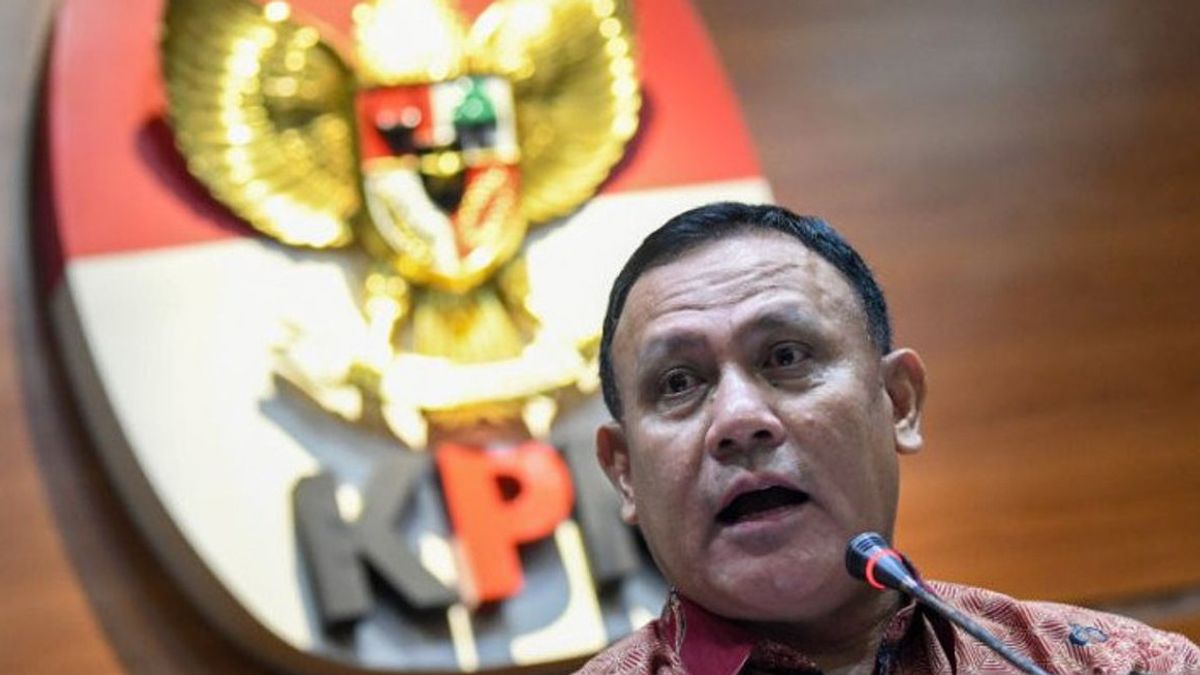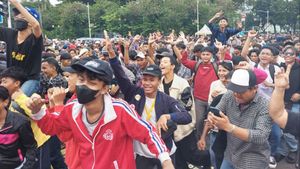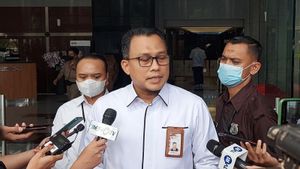
JAKARTA - The Corruption Eradication Commission (KPK) announced the honorable dismissal of 57 employees who failed the national insight test (TWK). The test results judged them to be radicals, Helpless. But there is a contradiction. Radicals are said to have been offered entry to BUMN. Loh, he said radical?
"Respectfully dismissed 51 KPK employees who were declared ineligible as of September 30, 2021," Deputy Chairman of the KPK Alexandre Marwata announced the dismissal of employees from the KPK Red and White Building, Wednesday, September 15.
Alex added that six other employees were also fired. The reason is because they are reluctant to take part in national defense training. This dismissal is faster. Previously, the KPK announced that the dismissal would be carried out in early November 2021.
"Hopefully, his dedication and charity will become good deeds and be useful for the nation and state," said Alex.
KPK recommends fired KPK employees to BUMNFollowing the polemic on the dismissal, it was rumored that the KPK lured a number of employees who did not pass the TWK to move to state-owned enterprises (BUMN). The condition is that they must first resign and sign a letter of application for distribution. This polemic was responded to critically by a senior KPK investigator, Novel Baswedan.
Confirming the news, Novel called the offer to move to BUMN an insult. Novel also considered the offer to prove that the removal of failed TWK employees was a systematic effort to weaken efforts to eradicate corruption. "So this is not just a work issue," Novel told reporters, Tuesday, September 14.

"This work distribution certainly provides direct benefits for the employees concerned, new work institutions, as well as for the KPK itself to expand and strengthen anti-corruption nodes in various institutions," said Cahya.
Director of Socialization and Anti-Corruption Campaign inactive KPK Giri Suprapdiono also responded to this recommendation. He agreed that this offer to BUMN could be a good opportunity to expand the value of anti-corruption. However, in the midst of an inopportune time, this recommendation actually seemed like a blow to the struggle of the employees who were removed by TWK.
"Distributing TMS employees to BUMN at this time is not at the right time because the KPK leadership has a long homework to follow up on the decisions of the Supreme Court, the Constitutional Court, Komnas HAM and the Ombudsman. The decisions and recommendations of these institutions must be carried out by the KPK first. One of them raised 75 to be civil servants before the October 2021 deadline," Giri told VOI, Friday, September 17.
Moreover, according to Giri, the KPK does not have the task, let alone the authority, to promise let alone channel its employees into BUMN. What the KPK has stated has the potential to become an issue of trading influence, aka buying and selling influence, which again contradicts the spirit of eradicating corruption.
"In our opinion, the most appropriate channel for us is the State, in this case the President of the Republic of Indonesia because he oversees state institutions and SOEs. If we are seen as needed by this republic, I believe the state's decision will be better. However, our goal is to return to work at the KPK, eradicate corruption, build our hope to become a clean developed and prosperous country," said Giri.
They say it's radical but why is it recommended to SOEs?
One of the most basic questions now is if KPK employees are radical, why does the KPK recommend employees to move to BUMN? Giri is also aware of this paradox. The paradox that Giri considers an insult. "If we look at the form they circulated, there is a request for resignation and an appeal to the leadership to distribute it."
"On the other hand, they stated that we cannot be fostered, not Pancasilaist and immediately dismissed. This is an insult to us," said Giri.
Questions that need to be answered by the KPK. We remember that the dismissal of these employees began with the implementation of the TWK. The test stated that 51 KPK employees - including Novel and Giri - did not pass. Their assessment resulted in a red report card linking them with radicalism, non-Pancasilaist attitudes, and the like.
Haven't SOEs already been exposed to the issue of radicalism? The hubbub of radicalism was then responded to by SOEs with a 'clean-up' strategy. In 2019, the Head of the National Counter-Terrorism Agency (BNPT) Komjen Police Suhardi Alius mentioned the exposure to radicalism in BUMN.

Alius' statement confirms what was revealed by the Coordinating Minister for Political, Legal and Security Affairs (Menkopolhukam) Mahfud MD. Mahfud even provided data on BUMN employees who were exposed to radicalism to BUMN Minister Erick Thohir. Erick then developed a number of 'clean-up' strategies to deal with exposure to radicalism in BUMN.
Special Staff of the Ministry of SOEs Arya Sinulingga explained that his party had updated the recruitment process. Second, by implementing the AKHLAK program (Many, Competent, Harmonious, Loyal, Adaptive, and Collaborative). The third step, explained Arya, is to strengthen collaboration with BNPT.
The Minister of SOEs today expressed his attitude that there is no place for radicalism, let alone terrorism, in SOEs. Erick made this statement in response to the arrest of an employee of PT Kimia Farma (Persero) Tbk with the initials S who was arrested by Densus 88 Anti-terror on Friday, September 10.








